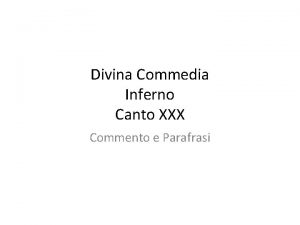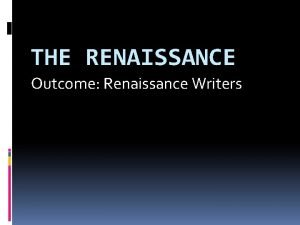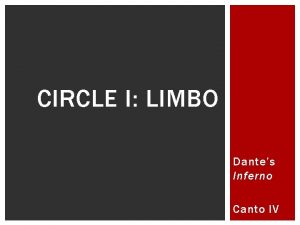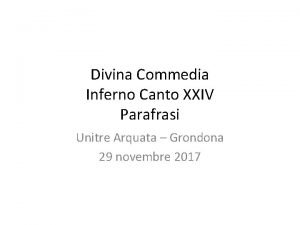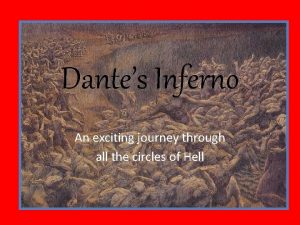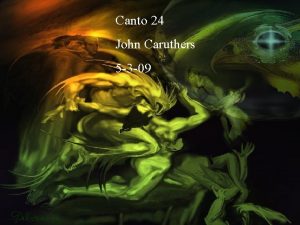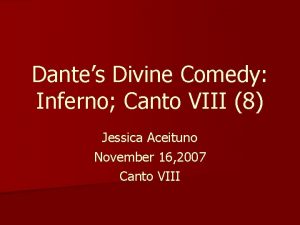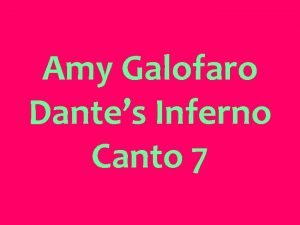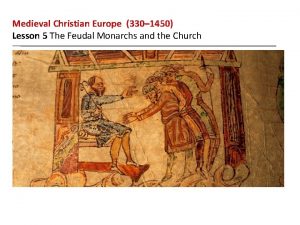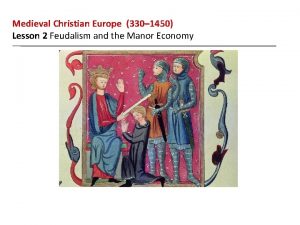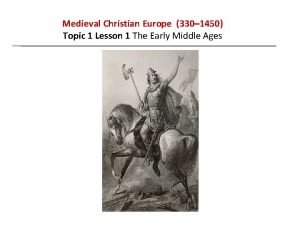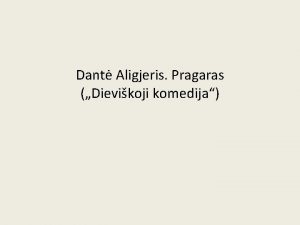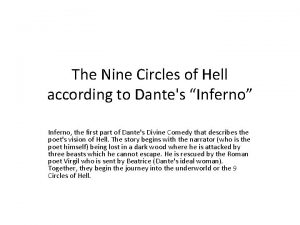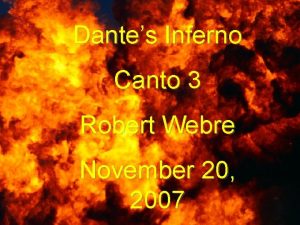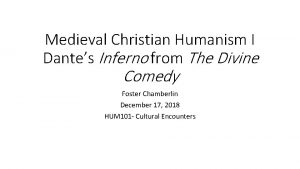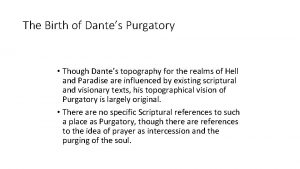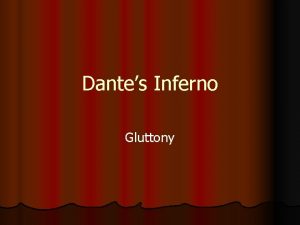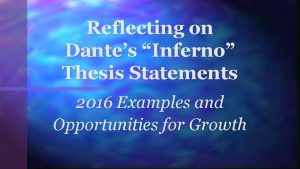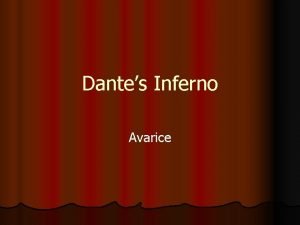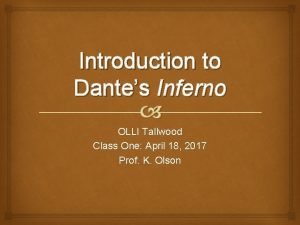Medieval Christian Humanism I Dantes Inferno from The












- Slides: 12

Medieval Christian Humanism I Dante’s Inferno from The Divine Comedy Foster Chamberlin December 17, 2018 HUM 101 - Cultural Encounters

Class Outline • Backgound • History • Dante and Florence • Form • Afterlife • Purpose and Poetry • Canto I • Conclusions

Highlighting Some Historical Points • Combining the Hebrew and Greek traditions • The fall of the Western Roman Empire (476 CE) • The Byzantine Empire (to 1453) • The Abbasid Empire (750 -1258) • The High Middle Ages (about 1000 -1300)

Dante Alighieri (1265 -1321) • Late 13 th Century Florence • The Guelfs and the Ghibellines • The Blacks and the Whites • Dante’s political ideas • Courtly love: Beatrice

Afterlife • Hebrew culture- the Sheol • Christianity- Heaven and Hell • The Greeks- Hades • The Romans- Aeneas’s visit to the Underworld • Purgatory

The Divine Comedy- Form • The vernacular • Comedy • The pilgrim (Dante)’s journey • Cantos • Terza rima form Nel mezzo del cammin di nostra vita mi ritrovai per una selva oscura, ché la diritta via era smarrita. Ahi quanto a dir qual era è cosa dura esta selvaggia e aspra e forte che nel pensier rinova la paura!

Canto I Nel mezzo del cammin di nostra vita Midway along the journey of our life I woke to find myself in a dark wood, mi ritrovai per una selva oscura, for I had wandered off from the straight path. ché la diritta via era smarrita. (p. 67, 1 -3) I raised my head and saw the hilltop shawled in morning rays of light sent from the planet That leads men straight ahead on every road. (p. 68, 16 -18)


Virgil as Tour Guide • “I think it best you follow me for your own good, and I shall be your guide and lead you out through an eternal place where you will hear desperate cries, and see tormented shades, some old as Hell itself, and know what second death is, from their screams. ” (p. 71, 112 -117) • “You are my teacher, the first of all my authors, and you alone the one from whom I took the noble style that was to bring me honor. ” (p. 70, 85 -87)


Switching Guides to whom, if you too wish to make the climb, a spirit, worthier than I, must take you; I shall go back, leaving you in her care because that Emperor dwelling on high will not let me lead any to His city, since I in life rebelled against His law. (p. 71, 121 -26)

Conclusions • In the second half of this class, the grey of the polytheistic traditions has been replaced by the black & white of the monotheistic • In essence, Dante finds the answers to his questions by combining the Greco-Roman and Abrahamic traditions (specifically Platonism and Christianity) • Can one have life after social death? Yes, in the eternal life/good/truth/light of God • Can a lost love still have meaning? Yes, it can help you turn to God • Like Al-Ghazali, it’s a personal, spiritual journey towards oneness with God • Like Al-Ghazali, Dante believes reason can help you get there (as well as Greco-Roman mythos, especially Virgil), but ultimately you need faith as well
